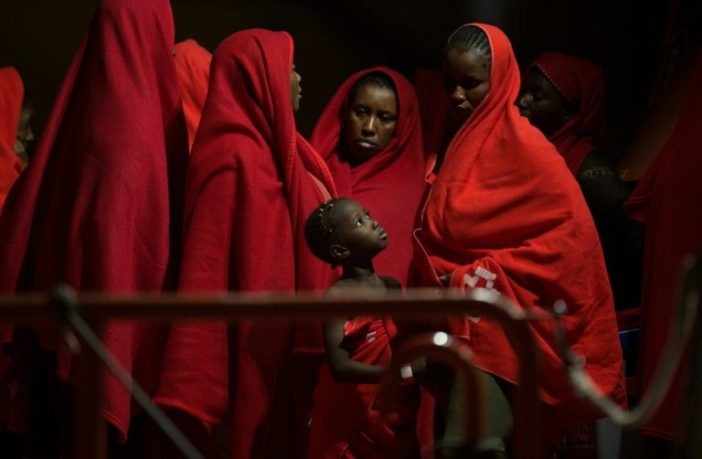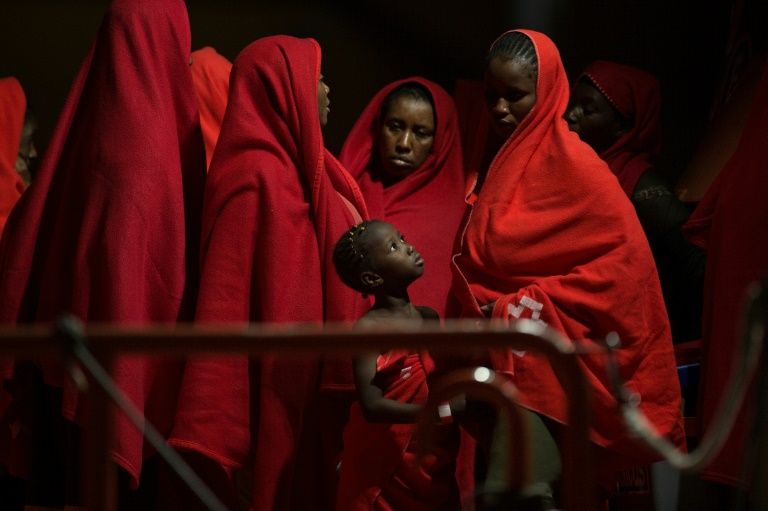AFP
by Laurence Boutreux
The number of migrants arriving by sea in Spain has plunged with Morocco stopping boat departures since signing lucrative agreements with Madrid and Brussels, experts say.
So far this year 15,683 migrants have arrived by sea, 45 percent down on the first eight months of 2018, according to Spanish interior ministry figures.
Spain became the main entry point for migrants seeking a better life in Europe in 2018 after Italy closed its ports and Greece began sending migrants back to Turkey under a 2016 agreement with the European Union (EU).
But that is no longer the case. The most used migrant sea route to Europe is once again from the eastern Mediterranean to Greece, the International Organization for Migration (IOM) says.
Moroccan authorities are stopping boats from setting sail to Spain “whereas before they let them leave”, said Jose Encinas of the AUGC Guardia Civil police association in the southern region of Andalusia where most migrants land.
A migration expert at an international organisation, who asked not to be named, said: “Moroccan maritime police have deployed means at strategic spots, especially in the north” to curb migrant departures to Spain.
– ‘Migration card’ –
Eduard Soler, a North Africa geopolitics specialist at Barcelona think tank CIDOB said “Morocco has realised that the migration card is a very effective pressure tool”.
“Times when bilateral relations between Morocco and Spain were difficult have coincided with a rise in (migrant) arrivals in Spain and when they have improved there was a dramatic drop (in arrivals),” he added.
The arrival of migrant ships in Spain had soared in the six months before Socialist Prime Minister Pedro Sanchez took power in June 2018.
He promptly dispatched ministers to Rabat before visiting the Moroccan capital himself in November for talks with King Mohammed VI.
A state visit followed in February 2019 by Spain’s King Felipe VI abd 11 bilateral agreements were signed covering energy to cultural cooperation.
“There was then a radical drop in the number of migrant arrivals. This does not seem like chance. Morocco decided to change its policy” said Soler.
The number of migrant arrivals by sea fell to 936 in February 2019 from 4,104 in the previous month, IOM figures show.
“When Morocco wants more money, it opens the tap of immigration and when it receives money, it closes it,” said Encinas.
Spain in August approved 32 million euros ($35 million) to help Morocco control illegal migration.
In July, Madrid authorised spending 26 million euros to supply Morocco’s interior ministry with vehicles.
– EU money –
A renegotiated fisheries agreement between Morocco and the European Union — which was approved by the European Parliament in February on the eve of King Felipe’s state visit — has also warmed ties between Brussels and Rabat.
On a visit to Morocco on Wednesday, Spanish Interior Minister Fernando Grande-Marlaska hailed the “police cooperation” between the two countries which had led to a “significant decrease” in migrant arrivals.
Within the EU, Madrid continues to highlight “Morocco’s crucial importance as a strategic partner for migration and other issues,” he added.
The EU gave Morocco 140 million euros last year to help manage migration.
“And that seems little,” Spain’s Deputy Prime Minister Carmen Calvo said last week, before adding Europe should do more for Morocco.
While Madrid praises its cooperation with Rabat, human rights groups accuse Morocco of forcibly preventing migrants form boarding boats to Spain.
Read more: http://www.digitaljournal.com/news/world/morocco-puts-brakes-on-migrant-flow-as-spain-and-eu-pay-out/article/557344#ixzz5ypZ7qyEP








